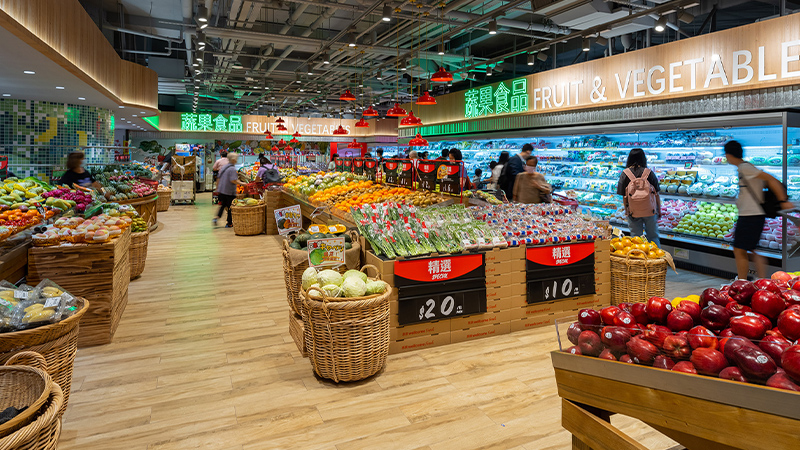Fast-Moving Consumer Goods (FMCG) is a vast and ever-evolving industry that encompasses a wide range of products, including food and beverages, personal care items, household goods, and more. In this blog post, we will delve into the competitive nature of the FMCG industry, exploring the key factors that shape its dynamics and influence the success of companies operating within it.
- Market Saturation and Intense Competition:
The FMCG industry is highly competitive, driven by market saturation and the presence of numerous players vying for consumer attention. With a plethora of brands and products available, companies must constantly innovate and differentiate themselves to gain a competitive edge. This intense competition fosters a dynamic environment where only the most adaptable and innovative companies thrive. - Consumer Behavior and Changing Preferences:
Understanding consumer behavior is crucial in the FMCG industry. Consumers today are more informed and discerning than ever before, seeking products that align with their values, preferences, and lifestyles. As a result, companies must continuously monitor and adapt to changing consumer trends, investing in market research and consumer insights to stay ahead of the competition. - Retail Landscape and Distribution Channels:
The FMCG industry heavily relies on efficient distribution channels and a strong retail presence. Traditional brick-and-mortar stores, e-commerce platforms, and direct-to-consumer models all play a significant role in reaching consumers. Companies must carefully strategize their distribution networks, ensuring their products are readily available to consumers while optimizing costs and maintaining strong relationships with retailers. - Branding and Marketing Strategies:
Building a strong brand presence is essential in the FMCG industry. Effective branding helps companies differentiate themselves from competitors and establish a loyal customer base. Successful FMCG companies invest in creative marketing strategies, leveraging various channels such as social media, influencer collaborations, and targeted advertising to engage with consumers and build brand equity. - Supply Chain Management and Operational Efficiency:
Efficient supply chain management is critical in the FMCG industry, where timely delivery and product availability are paramount. Companies must optimize their supply chains, ensuring seamless coordination between suppliers, manufacturers, distributors, and retailers. Embracing technology and data-driven solutions can enhance operational efficiency, reduce costs, and improve customer satisfaction. - Regulatory Environment and Sustainability:
The FMCG industry operates within a complex regulatory framework, with various regulations governing product safety, labeling, and advertising. Adhering to these regulations is essential for companies to maintain consumer trust and avoid legal issues. Additionally, sustainability has become a significant concern for both consumers and regulators. FMCG companies must embrace sustainable practices, such as eco-friendly packaging and responsible sourcing, to remain competitive in the market.
Conclusion:
The FMCG industry is undoubtedly a highly competitive landscape, driven by market saturation, changing consumer preferences, and the need for constant innovation. To succeed in this dynamic industry, companies must stay attuned to consumer behavior, invest in branding and marketing strategies, optimize their supply chains, and embrace sustainability. By understanding and navigating these key factors, FMCG companies can position themselves for success in an ever-evolving market.


